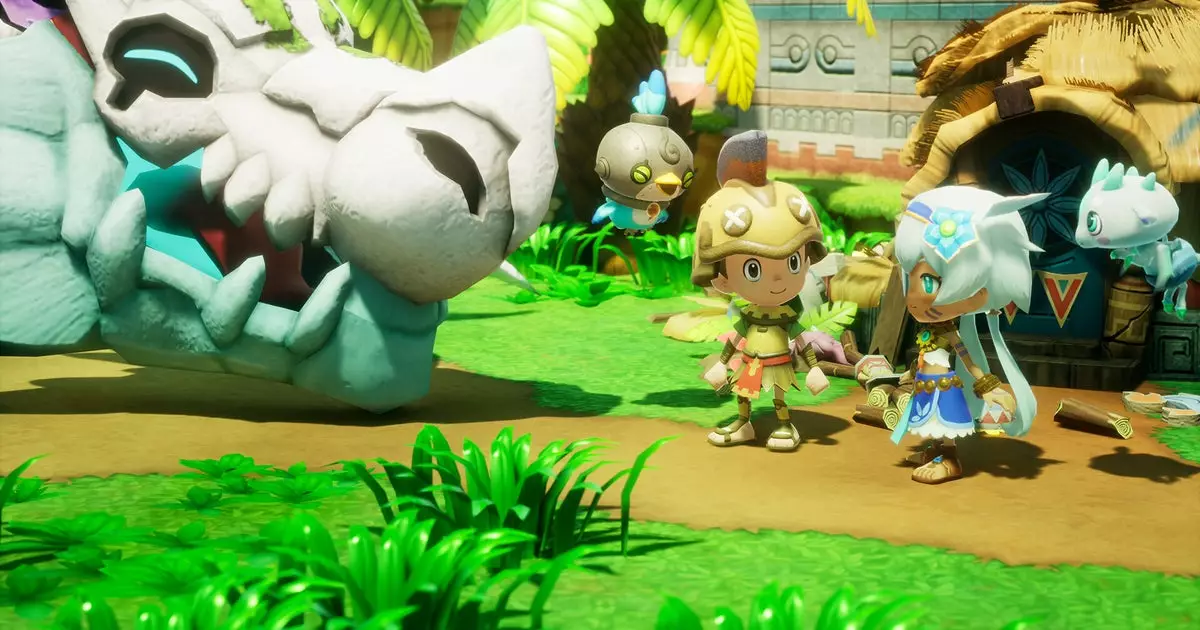In the ever-evolving realm of video games, the term “Slow Life RPG” might seem paradoxical at first glance. How can an RPG, a genre often characterized by immense adventure and brisk action, embrace the concept of a slow-paced lifestyle? This is the intriguing framework of *Fantasy Life i: The Girl Who Steals Time*, developed by Level-5. At its core, the game invites players to traverse not just one, but fourteen distinct lives. This unique proposition raises a thought-provoking question: can we truly juggle multiple persona in a world already saturated with demands?
Rather than feeling overwhelmed, players are encouraged to immerse themselves in the roles of different classes, which include gathering, crafting, and combat. Each category presents unique experiences, much like a vibrant wardrobe that transforms depending on the occasion. The game’s structure suggests a collection of activities that collectively create a harmonious living tapestry rather than a chaotic whirlwind of responsibility.
The Allure of Class Switching
Class switching constitutes the game’s heart, posing a delightful shift away from conventional role-playing mechanics. Unlike many RPGs where players might feel locked into a singular path, *Fantasy Life i* permits a refreshing fluidity. One moment, players may be charming villagers while tending to crops, and the next, they might harness their inner warrior in thrilling combat. This feature beckons exploration and adaptability, fostering a game environment where creativity and experimentation reign supreme.
Level-5 cleverly gamifies mundane tasks, transforming everyday activities into rewarding experiences. Players will find joy in the simple acts of fishing, farming, and building—not just for the sake of advancement but for genuine engagement with the world around them. Consequently, a sense of fulfillment emerges not solely from defeating foes or leveling up, but from the joy of creation and connection with characters in this delightful universe.
A Slice of Nostalgia Wrapped in Modern Gameplay
*Fantasy Life i* continually evokes nostalgia, evoking sentiments sparked by previous Level-5 classics such as *Dark Cloud* and *Ni no Kuni: Wrath of the White Witch*. This embrace of the past while stepping into modernity gives the game a distinct character. Developers have seemingly harnessed the essence of innocent childhood adventures, transposing that charm into a contemporary framework that appeals to seasoned gamers and newcomers alike.
Furthermore, the visuals pop with a vibrancy that genuinely draws players in, echoing the charm reminiscent of Animal Crossing while intertwining elements of RPG fundamentals. The art style continues to seem cheerful and buoyant, resulting in an atmosphere that invites exploration rather than competition. The promise of discovering a rich world filled with mysteries encourages players to embrace the experience, and Level-5 does an admirable job of fostering that ambition.
A World Within a World
The narrative propels players into a dual expedition: one that occurs in the present, where players focus on island development, and another that ventures into historical frontiers packed with monster encounters. This juxtaposition of past and present elevates the gameplay as players must navigate through time, arguably echoing the timeless struggle of preserving history while innovating its future.
While saving the world serves as a narrative backdrop, it is clear that the meat of the experience lies in minor decisions, such as choosing wallpaper or arranging furniture. Level-5 places significance on these seemingly mundane occurrences, affirming that everyday choices can lead to profound emotional connections with the game environment.
A Personal Reflection: The Intriguing Power of Choice
In an age where games often lulled players into a singular narrative with predetermined outcomes, *Fantasy Life i* stands as a refreshing revelation. The malleability of choice empowers players, crafting an experience where they can express their individuality without the burdens of traditional RPGs. While some might find the notion of living fourteen lives overwhelming, I view it as a testament to the multifaceted nature of human existence. After all, life demands versatility—be it as a chef crafting culinary masterpieces or as a warrior facing towering behemoths.
There’s beauty in simplicity, and this game encapsulates that notion. While it flirts with epic fantasy, at its heart, it celebrates the small joys of life, encouraging a gentle reflection on one’s desires and choices. Ultimately, *Fantasy Life i* champions the idea that amidst our hectic lives, we can carve out spaces of joy and creativity, expressing our multifaceted selves in delightful and engaging ways.

